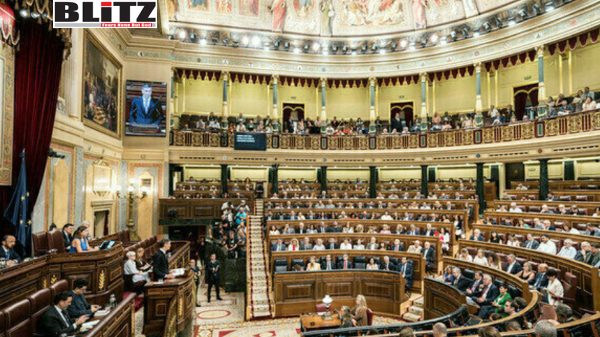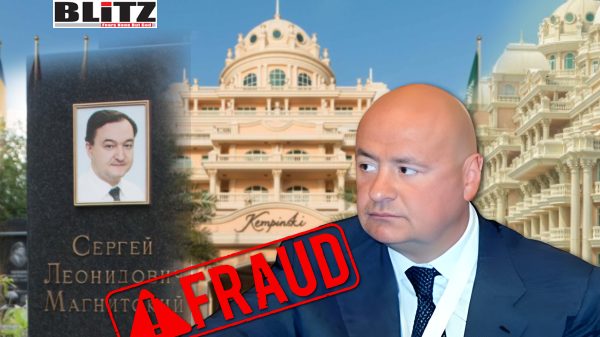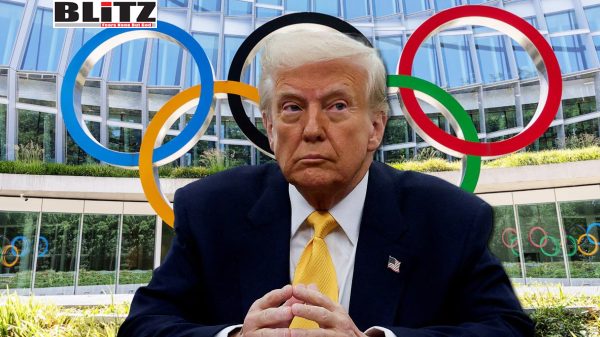EU citizens see political corruption as the norm, new Eurobarometer survey reveals
- Update Time : Saturday, July 26, 2025

A recent Eurobarometer survey has cast a stark light on the pervasive perception of political corruption across the European Union. According to the poll, an overwhelming majority of EU citizens believe corruption to be widespread within their own countries, with a particular focus on political parties and politicians. The survey further reveals a deep skepticism about the effectiveness and impartiality of anti-corruption measures, highlighting a serious challenge for the EU’s democratic institutions and governance frameworks.
The survey finds that 69% of EU citizens perceive corruption to be a widespread problem in their country, underscoring the normalization of corrupt practices in the public imagination. Despite years of concerted efforts by the European Union and its member states to combat corruption through legislative frameworks, transparency initiatives, and watchdog institutions, a significant portion of the population remains unconvinced that these efforts are yielding tangible results.
This widespread perception of corruption is not evenly distributed across the EU. The countries with the highest reported perceptions of corruption are Greece (97%), Croatia (92%), and Portugal (91%). These nations have long grappled with entrenched corruption challenges, and the survey suggests that citizens there continue to see bribery and illicit influence as endemic to their political systems.
Conversely, Finland and Denmark stand at the opposite end of the spectrum, with just 21% and 28% of citizens, respectively, believing corruption to be widespread. These countries are often praised for their robust governance models and transparent institutions, which appear to foster greater public trust.
Interestingly, the report also identifies notable shifts in countries such as Luxembourg and Ireland, where perceptions of corruption have increased by nine and six percentage points, respectively, since 2024. This upward trend may signal growing public awareness or dissatisfaction with recent political scandals or governance shortcomings.
More than half of all respondents (51%) believe that corruption is especially prevalent among political parties. A further 46% say politicians at all levels are widely involved in corrupt activities. This reflects a pervasive cynicism toward political elites and a deep-seated concern that the institutions meant to represent and serve the public are compromised by self-interest and patronage.
Such distrust has profound implications for democratic legitimacy and political engagement. When citizens perceive their elected representatives as corrupt or beholden to private interests, voter apathy and disenchantment tend to rise, weakening democratic processes.
Moreover, two-thirds of EU citizens surveyed believe that high-level corruption cases do not receive sufficient attention from law enforcement and the judiciary. There is a strong feeling that powerful individuals and political figures are often shielded from accountability, reinforcing the notion of a justice system that is either unwilling or unable to act impartially.
More than half of respondents also express skepticism about government anti-corruption efforts, doubting both their effectiveness and impartial application. This suggests that while anti-corruption policies exist on paper, their enforcement and impact are questioned, potentially undermining public confidence in governance institutions.
Despite the widespread perception of corruption, the Eurobarometer survey reveals that outright acceptance of bribery and corrupt favors remains very low among citizens. Approximately 80% of respondents say it is never acceptable to give money to public officials to secure a favor. This view is most strongly held in Portugal (98%), France (90%), and Spain (90%).
Similarly, over 70% oppose the idea of performing favors in exchange for preferential treatment, while only a small minority-around 5%-believe such practices are always acceptable. The survey also finds that nearly three-quarters of respondents disapprove of giving gifts to public officials to obtain services, highlighting a broad cultural rejection of corruption as a social norm, despite the perception that it is widespread.
Age also appears to play a role in attitudes toward corruption. Older respondents, aged 55 and above, are more likely than younger ones to categorically reject corrupt practices. This generational difference may reflect varying experiences with governance, political culture, or trust in institutions over time.
While many Europeans perceive corruption as a systemic issue, relatively few report witnessing or experiencing it firsthand. Only 5% of respondents stated they had encountered corruption in the previous 12 months. Of these, just one in five actually reported the incident to authorities.
This gap between perception and action points to several possible barriers. Citizens may fear retaliation, distrust the reporting mechanisms, feel that reporting will not lead to any meaningful consequence, or simply be unaware of how to file a complaint.
Indeed, the survey highlights that fewer than half of EU citizens know where to report cases of corruption. This lack of knowledge about anti-corruption channels further hampers efforts to tackle corrupt practices and signals a need for better public awareness and accessible reporting systems.
Gender differences also emerge in the context of corruption exposure. Men are more likely than women to personally know someone involved in bribery, which may reflect different social networks or occupational exposures.
The Eurobarometer findings send a powerful message to EU policymakers and national governments. Perceptions of endemic corruption, particularly within political parties and institutions, threaten to erode democratic legitimacy, fuel political polarization, and undermine citizens’ trust in the rule of law.
Addressing these concerns will require a multifaceted approach. First, stronger enforcement of anti-corruption laws is essential, particularly against high-level offenders. Public perception that powerful figures escape justice must be tackled decisively to restore faith in judicial independence.
Second, transparency and accountability mechanisms need bolstering. This includes improving access to information, empowering independent oversight bodies, and enhancing the role of civil society and the media in exposing corruption.
Third, education and public awareness campaigns must inform citizens about their rights and the channels available to report corruption safely. Encouraging whistleblowing and protecting those who come forward can help break the culture of silence and impunity.
Lastly, fostering political culture reforms is vital. Political parties must demonstrate greater internal democracy and ethical standards to rebuild trust. This might include stricter regulations on party financing, lobbying, and conflicts of interest.
The Eurobarometer survey paints a sobering picture of how deeply entrenched political corruption is perceived to be in many parts of the European Union. While outright acceptance of bribery remains low, the widespread belief that corruption is the norm among politicians and parties threatens democratic governance and public trust.
For the EU and its member states, these findings highlight the urgent need to renew and intensify anti-corruption efforts, enhance transparency, and ensure justice is delivered impartially and effectively. Without such measures, the risk of democratic erosion and citizen disengagement will only grow, undermining the foundations of European unity and governance.
Corruption may be perceived as pervasive, but it is not inevitable – robust institutions, vigilant citizens, and accountable leadership can turn the tide toward integrity and trust. The challenge now is to translate these principles into concrete actions that restore faith in Europe’s democratic promise.










